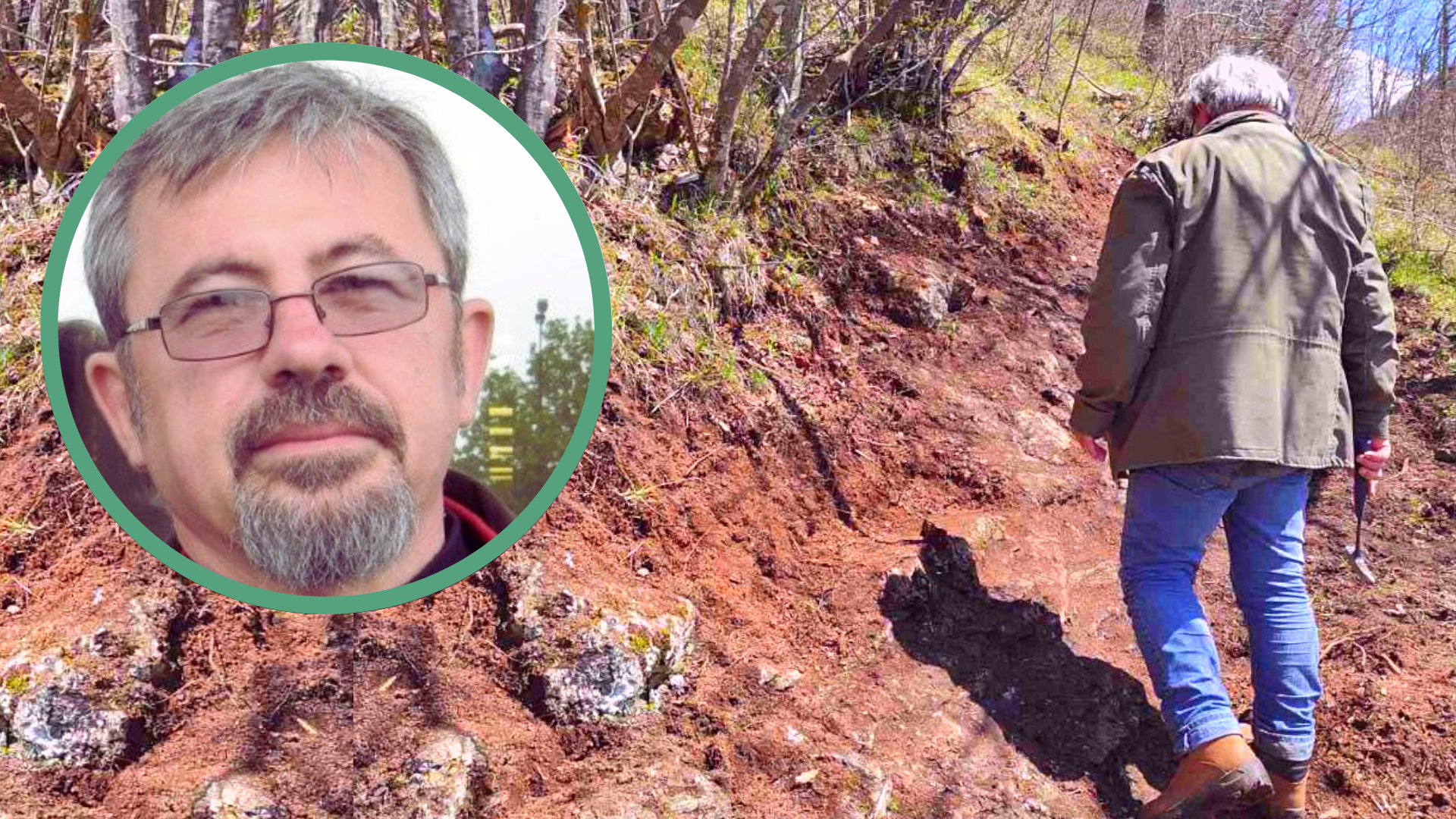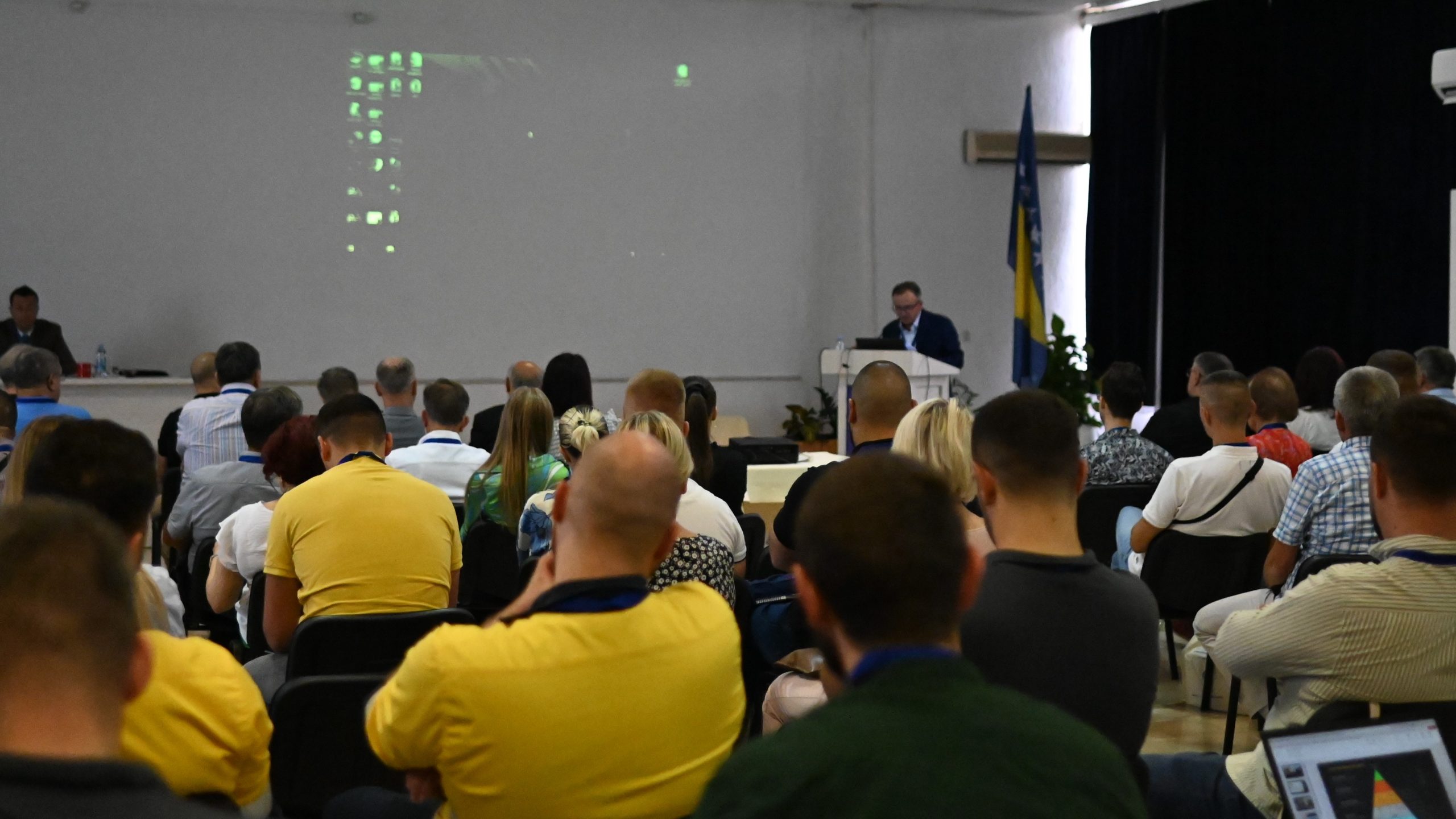In order to better understand what Lykos Balkan Metals does, we present an exclusive interview with eminent geology expert, Mr. Rajko Kondžulović.
Mr. Kondzulovic, how does one become a geologist? How did you become a geologist and why did you decide to pursue this path?
In professional terms, one becomes a geologist through education, by completing studies in a field such as mining, mining-geology, petroleum-geology, and so on. In a professional sense, one becomes a geologist through motivated and responsible work in the field they choose during their studies or geological examination.
After finishing high school, I enrolled in the Faculty of Mining and Geology in Belgrade because I had been introduced to geological examination in some way since my early childhood. Namely, extensive geological examination on uranium and tin was conducted in my hometown (around Arandjelovac) from the 1960s to the 1980s. I would see geologists in the field, and they were respected and esteemed by the local population. As a child, I found it fascinating how they could find something that was invisible and hidden deep in the ground.
Lykos Balkan Metals company has been conducting geological examination in the municipalities of Mrkonjic Grad and Jezero for some time now. What are your observations after visiting the exploration area?
Lykos Balkan Metals company has achieved very significant results during the geological examination in the municipalities of Mrkonjic Grad and Jezero. The gold contents registered in surface samples at several locations are extremely interesting, primarily because there had been no previous data on the presence of gold in these areas. Besides the gold contents, all other information obtained by the geologists of Lykos Balkan Metals during the geological examination is positive in terms of the economic justification for further geological exploration in this area.
Your career spans several decades, and you have achieved many remarkable results. Have you had any experience with larger gold deposits or similar noble metal deposits in your career?
I have worked on multiple projects involving geological examination on various metals, coal, and non-metals in Serbia and around the world (Macedonia, Mongolia, Albania, Morocco). I have conducted gold examination in Mongolia and Serbia (in the Blagojev Kamen area in eastern Serbia). Additionally, I have processed the results of long-term geological examination conducted by the Canadian company Dundee Precious Metals and managed the preparation of reports on gold reserves in newly discovered deposits in eastern Serbia.
In addition to gold examination, I have worked on uranium examination in Mongolia, copper examination in Serbia and Macedonia, and lead and zinc examination in Morocco and Serbia, as well as other mineral resources in Serbia and abroad. The geological examination projects in which I participated or led were in various stages of the examination and development process, so the results should be evaluated accordingly. Within all these mentioned examination projects, there have been many positive results, such as the discovery and identification of areas suitable for geological examination, the discovery of new resources, the increase in ore reserves in operating mines, and so on.
What is your estimation of the potential gold reserves in the municipalities of Jezero and Mrkonjic Grad?
The initial results obtained by Lykos Balkan Metals company are very significant. Firstly, because they represent completely new, previously unknown data about gold occurrences in this area. Secondly, some gold contents determined in surface samples are exceptionally high and exceed the levels of geochemical anomalies, indicating economically significant gold contents.
Given that it is in the initial stages and results of the examination, it is difficult and ungrateful to provide an estimate of the potential gold resources (reserves). In addition to these and other data obtained through examination related to the geological composition and structure of the area, there are indications that conditions exist for the discovery of economically significant gold resources, which would require further detailed investigations. Moreover, besides the locations where gold contents have already been identified, there are indications that new occurrences of gold can be found in other parts of the approved exploration area.
What is the potential economic benefit for local communities in case of discovering larger gold reserves?
Potential economic benefits for the local and broader social community can only be discussed in the case of discovering deposits that can be economically exploited. Extensive and long-term geological examination, testing, feasibility studies, and similar activities are necessary for the discovery and definition of deposits. In the event of deposit discovery and verification of gold reserves by the relevant government authorities, a very complex and lengthy process of mine development follows (if there is investor interest).
In addition to direct employment and income in the form of wages, taxes, and contributions, other activities generated by work are also essential: supplying consumables, various service activities carried out at the local level, such as contractors, accommodations, restaurants, gas stations, etc.
How do you comment on the increasingly frequent criticisms and attacks claiming that geological examination has a negative impact on the environment?
Geological examination on mineral resources is an economic activity aimed, among other things, at finding deposits that have economic significance and can be economically exploited. I believe people associate geological examination with exploitation, i.e., mine development, and then protest “as a whole.” These activities should be viewed separately because applied geological examination is also conducted for other purposes, and according to global experience, only a few percent of exploration projects lead to mine development for various reasons.
I think that nowadays, people easily accept various pieces of information or half-truths that are quickly disseminated by various eco-activists. The fact is that it is much easier to mobilize citizens for a protest against something that activists claim will endanger the environment, health, and other aspects than to engage them in concrete environmental actions such as collecting garbage and waste in the streets, parks, alongside roads, rivers, or educating them about responsible behavior towards the environment. We witness in our everyday lives, as individuals, that we are very negligent and irresponsible towards the environment in countless ways.
The essence is that people are de facto hypocritical in that regard. First and foremost, many disproportionate reactions stem from ignorance or being easily influenced. Nowadays, everyone is against mining, and recently, against geological examination as well. We must understand that the use of mineral resources (metals and non-metals) has led to the civilization and technological level we live in today. How much are we willing to give up everything that comes from mining: electricity, household appliances, cars, and other means of transportation, modern construction, road construction, mobile phones, etc.? All of that would not exist without coal, oil, iron, copper, gold, rare metals, various types of rocks, quartz, clay, sand, gravel, and many other raw materials obtained through the mining industry. Many, for example, prescribe deadlines for the introduction of electric cars, but everyone ignores which raw material is used to produce the batteries that power them. It’s precisely the incriminated lithium.
Is there any recorded data worldwide indicating that geological examination has jeopardized the environment?
I am not aware of any data indicating that any of the applied geological examination, such as hydrogeological, geotechnical, mineral resource exploration, etc., has jeopardized the environment. During the execution of certain exploratory works (such as excavation and drilling), there may be minor degradation of the environment, primarily the soil, including the creation of shallow channels (excavations), preparation of drilling platforms, and the construction of access roads. It is an obligation and a practice to restore the terrain to its original state after the completion of the works, including backfilling channels and leveling drilling sites, among other measures. All necessary environmental protection measures are implemented during these works to prevent uncontrolled release of effluents, fuel, oil, lubricants, and other waste.
What would you say to concerned citizens and those who frequently spread misinformation, often questioning the expertise of geologists and even their dignity on a personal level?
There are no justified reasons for citizens to be concerned about geological examination activities. These investigations contribute to the understanding of geological environments, mineral potential, and other characteristics that can be beneficial both locally and for the broader society.
Often, extremely biased activists directly target geologists through various media platforms, labeling them as “harmful elements” of society, disrupting their work, denying access to public roads, subjecting them to identification, verbal harassment, issuing open threats, and even physically endangering individuals who professionally carry out their job. Geological examination is our profession, on which we and our families depend for a living. Fieldwork is our job, and our activities are not illegal – we are the “contractors” on geological examination projects approved by the competent state authorities.













